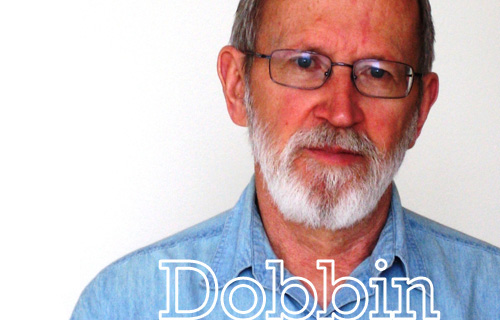Beyond Harper: Rebuilding community
Of all the appalling abuses of democracy and ruthless dismantling of the country represented by Bill C-38 one stands out of as representative of the right wing dystopia that Stephen Harper has in store for the 99 per cent.
And that is the mentality and ideology behind the draconian changes to EI. This is particularly true of the changes affecting seasonal workers in the Atlantic region but in general the whole underlying principle that workers should simply move, holus bolus, to where the jobs are is an assault on the very nature of community.
Of course, it is not news that neo-liberalism – obsessed with the individual, competition and the market – destroys community. Margaret Thatcher made it explicit: “…there is no such thing as society. There are individual men and women, and there are families.” All happily selling their labour and buying stuff. And that’s all there is – no cooperation, no compassion, no equity no sharing.
Of course Thatcher’s absurdist declaration was aspirational – this was the model of the world she hoped to create though to a depressing degree she was successful. But the strong resistance to Harper’s gutting of EI demonstrates that Canadians know both that community and society do exist and that they are worth saving. Even the pro-business premiers of the Atlantic region came out swinging against the changes because they know their communities have for decades been maintained on part-time seasonal work. Indeed one of the very best features of EI was that it recognized this and was adapted to make such communities viable.
Neo-liberalism vs. the commons
Yet in the decades since the free trade deals were first signed we have gradually stopped talking about community and have perhaps forgotten just how critical it is to human health and indeed what it is to be human. The hyper-competitiveness promoted by neo-liberalism and the politicians it has captured is completely at odds with our social natures. Community – the commons – is at the core of what we have lost and reclaiming it will be at the core of any successful social movement that halts and reverses the current trends.
I was reminded of this when I read Malcolm Gladwell’s remarkable book Outliers. The book is a compelling look at human achievements that fall outside normal experience. The first chapter is about Roseto, a US town founded in the late 1800s by the inhabitants of an Italian town of the same name. In the late 1950s the ethnically homogeneous town caught the attention of doctor Stephen Wolf who was told by a colleague that there wasn’t a single man under 65 in the town who suffered from heart disease – an almost unbelievable finding given that at the time heart disease was the leading cause of death of men under 65.
Wolf’s subsequent investigation of this phenomenon found a classic outlier: a community so remarkably healthy that it fell completely outside the norm for similar communities in the area. It showed not only low rates of heart disease but a 30-35 per cent lower rate of death from other causes; it had no suicides, no alcoholism, no drug addiction, very little crime and no one on welfare. Wolf with the help of a sociologist slowly eliminated possible explanations: diet, genetics, geography.
What explained Roseto, was Roseto itself. They observed “..how the Rosetans visited one another, stopping to chat in Italian on the street, say, or cooking for one another in their back yards. They learned about the extended family clans that underlay the town’s social structures. …They counted twenty-two separate civic organizations in a town of under two thousand people. They picked up on the particularly egalitarian ethos of the community which discouraged the wealthy from flaunting their success and helped the unsuccessful obscure their failures.”
Roseto was healthy because its inhabitants “…had created a powerful, protective social structure capable of insulating them from the pressures of the modern world.” We could do worse than to look at Roseto of the 1950s and ’60s when we start to rebuild community in Canada because if we want to halt the march to a competitive, mean-spirited and selfish existence for our children, this is the vision we have to keep in our minds.
Harper continues culture war against the commons
Reclaiming what we have lost will not be easy. The policies already implemented by the anti-governments of the day present huge barriers to such a project. Studies of work-life balance suggest that most working people in Canada don’t have anything resembling family life let alone time for engaging in community. Over the past twenty years of culture war against the commons we have acquiesced to the notion that we are here to serve the economy. The consistent line of the Harper government in forcing through its budget implementation bill is that is must be passed as quickly as possible in the interests of the economy. Literally everything the government does – from EI changes, to OAS revisions to gutting environmental laws – is dedicated to the economy. This is what Canada has been reduced to.
Corporations, of course, promote this ideology and take advantage of it. A small example of this revealed itself in my community, Powell River, when our hedge-fund owned paper mill, Catalyst Paper, presented the city with a check for half the taxes it owed declaring that it would only pay for the specific services it actually used: presumably roads, fire and police protection, and water. In other words all the other services which fulfilled its employees needs – recreation, culture, health, education – had nothing to do with them. For Catalyst, like the Harper government, there is no such thing as community.
The example of Roseto has lessons for progressives fighting the gradual dismantling of the country. It suggests that we need to rethink the model of social change we have been using for over forty years – single issue organizations, sometimes referred to as issue “silos,” organizations fighting for Medicare, child care, the environment, against poverty, for affordable secondary education – it’s a long list.
The limitations of single issue organizing
This model of social change organizing was formed in the early 1970s at a time when governments actually believed in democratic governance and genuinely engaged with civil society groups. Those groups not only pressured governments on policy matters they offered expert advice on the social policy areas they focused on. It was by no means a perfect relationship but there was a genuine dialogue. But today such groups’ interventions are like one hand clapping. Governments are dismantling what previous governments built – they don’t want advice and unless you’re strong enough to actually threaten their power they have no intention of responding to even majority opinion.
I am not suggesting that single issue organizations have been ineffective. Far from it, had they not been active things would be immeasurably worse and Medicare, for example, would be well down the road to privatization. But it is clear that these groups are now, for the most part shadows of their former selves, exhausted from their efforts to have an impact on the Harper (and other) governments and are finding it more and more difficult to sign up members and motivate them to act. The major exceptions are environmental groups with the Enbridge Pipeline issue as the obvious example.
The main response of single issue organizations to the neo-liberal reality has been the creation of coalitions – an effort to create a broad social movement by getting all groups to join in battles that affect all their concerns. The anti-free trade Action Canada Network of the late 1980s was the most important and most successful. But the initiators of the ACN, the churches and labour, have been virtually silent for years. With labour unwilling to lead and fund coalitions their future is in doubt.
Occupy and the Quebec student rebellion
Reclaiming the commons through a broad-based movement will not be easy but two momentous developments illustrate the need for reinventing social change movements: Occupy and the Quebec rebellion. Both have something extraordinary and potentially transformational in common: they see themselves as creating community and are marked not just by anger at injustice and inequality but by an outpouring of joy at discovering that newly created community.
The Occupy movement’s creating of new communities (with libraries, day care, kitchens and medical clinics at their sites) is well known – so, too, is the nurturing positive spirit of the movement. The Quebec ‘Casseroles’ rebellion (named after the nightly, spirited banging of pots in communities across Quebec) is imbued with that same spirit. According to journalist and rabble contributor Ethan Cox “..it is not a movement of anger, of rage or of hate. It is a movement of love, of community, and of hope. People who would be alone in their houses watching TV take to the streets and march with neighbours they never knew they had.”
If you want to know how governments like Harper’s authoritarian regime will be decisively dispatched to history’s dustbin you need look no further than these two movements. They reveal the not only the strength of their community-based moral imperative but the weakness of politics as usual.
For decades progressive politics has mimicked the individualistic consumer society which is its greatest barrier to success. We do politics like we do our job or our recreation or family life – separate from and too often unrelated to other aspects of our lives. Because of the peculiar infrastructure of civil society we devote time to “social change” – going to meetings, writing checks, going to demos, writing letters – as if it were a job. Our time spent trying to make the world a better place parallels the political silos we choose to devote time to. But it doesn’t build community.
Single issue organizations will have a role to play for a long while yet and that role is still important in fighting back against the destruction of democratic governance. But it is now largely a rearguard action against powerful and ruthless forces who are committed to dismantling what we have built. We need new activist models, rooted in community and replicating Occupy’s and Casseroles’s energy and vitality, if we are actually to build the world we know is possible.
Murray Dobbin is a blogger, author, and activist. This column originally appeared in his blog.

























Comments